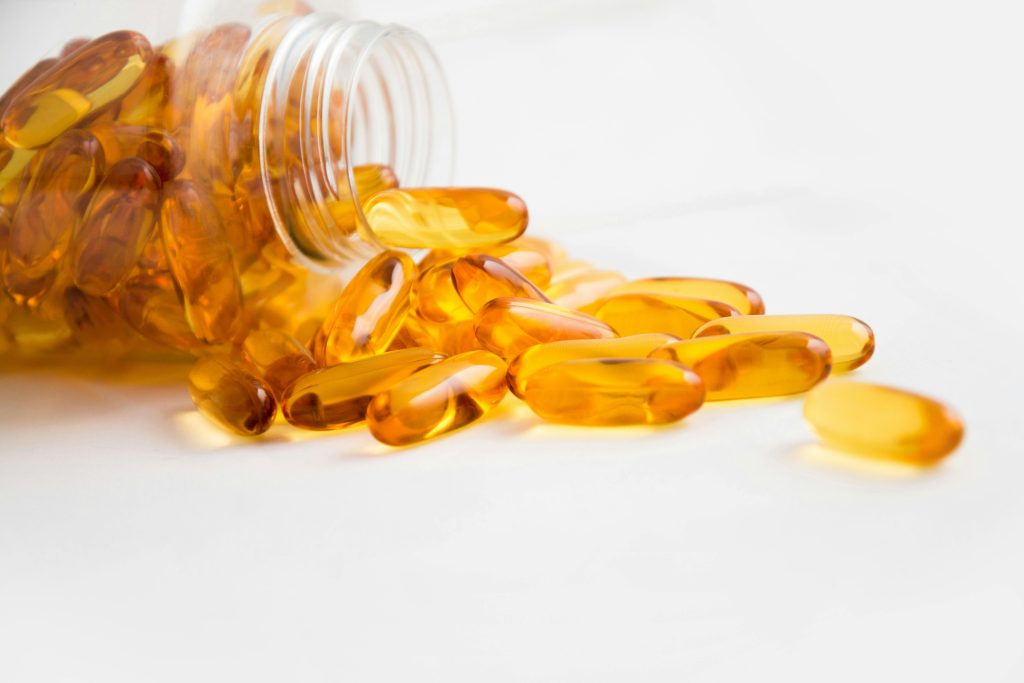It is said that we should provide all vitamins and minerals from food. However, this is not always possible. Unfortunately, today’s food contains up to 90% less vitamins and minerals than, for example, in the 80s of the last century. This is due to the depletion of soils (monoculture crops), the use of artificial fertilizers and pesticides.
Caffeine
Caffeine is a substance that binds to receptors for adenosine in the central nervous system, taking its place. Adenosine, on the other hand, is a compound that informs your body about fatigue by binding to the aforementioned adenosine receptors. Caffeine prevents adenosine from transmitting a signal to the brain about increasing fatigue. That’s why caffeine allows you to train longer. Its role is also to mobilize adipose tissue as a source of energy, it also affects muscle contractility.
In the case of caffeine, the dose and the body’s individual reaction to this compound are extremely important. It is assumed that the optimal dose of caffeine to improve performance is about 3 mg for each kilogram of body weight. If you weigh 65 kg, you can take about 195 mg of caffeine (1-2 cups of coffee, depending on the strength). Its source can be coffee, tea, sports drinks or special supplements.
Excess caffeine, instead of helping, can be more disturbing, causing anxiety, muscle tremors, and difficulty controlling movement. Some people have a genetic predisposition to a stronger reaction to caffeine and among such people even the recommended dose of 3 mg/kg/b.w. can cause unpleasant symptoms.
Caffeine is most useful in endurance sports, where training lasts more than 60 minutes, or in very high-intensity areas, even if the effort is shorter. Remember not to introduce a full dose of caffeine right away, first check your individual reaction to this compound. You can take caffeine:
before training,
during training,
at the end of your workout, when you feel getting tired.
Beetroot juice
Beetroot juice is a source of nitrates, which are converted to nitric oxide in the body. Nitric oxide dilates blood vessels, which makes the blood more effective at transporting oxygen and nutrients to the muscles. It has been shown that drinking beetroot juice can increase your performance and thus lead to an increase in training by up to 30 minutes.
Drink 2 glasses of beetroot juice or a sports shot with beetroot juice 2-3 hours before training. The greatest benefits of drinking this juice are noticed by people who exercise recreationally, those who are just building their fitness. Beetroot juice is less effective in the group of professional athletes whose bodies have already adapted to exercise.
Zinc, iron and calcium
Zinc, iron and calcium are minerals that support sports performance. Calcium strengthens bones, participates in muscle contraction and regulates blood pressure. Iron is a component of hemoglobin, a pigment that transports oxygen, and zinc reduces the risk of colds and has an anti-inflammatory effect.
For all three minerals, consider the food sources first. Supplementation should be introduced on the basis of dietary analysis, when it is difficult to cover the demand from food and/or when laboratory tests show a deficiency of zinc, iron or calcium.
Sample supplementation plan
Check out a sample plan that includes gym supplements for beginners.
Gym supplements for beginners – strength training:
vitamin d
protein supplement,
creatine.
Gym supplements for beginners – cardio (endurance) training:
vitamin d
creatine
beetroot juice,
For longer workouts, you can support yourself with caffeine.
In both cases, if necessary, additionally:
supplementation with zinc and/or iron and/or calcium,
probiotics,
other supplements suggested by a specialist.
Remember, however, that this is only a suggestion that does not take into account your individual needs. Supplementation should always be consulted with a dietician who will take into account the balance of your diet as well as the intensity and frequency of training.
